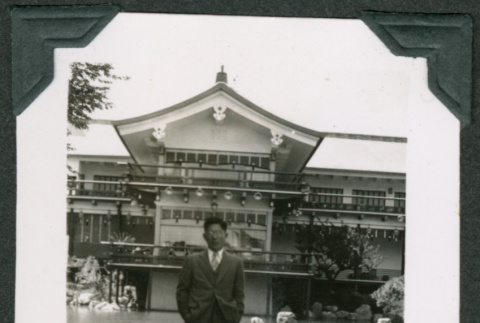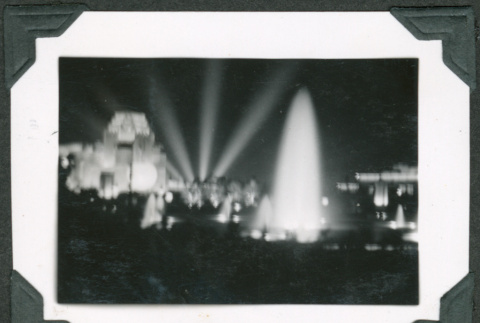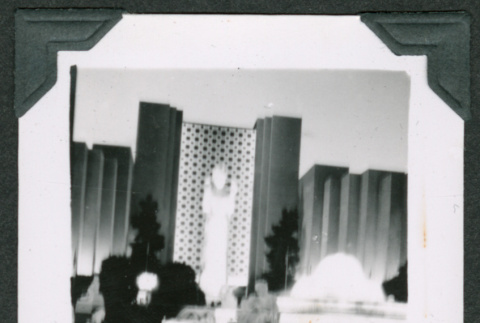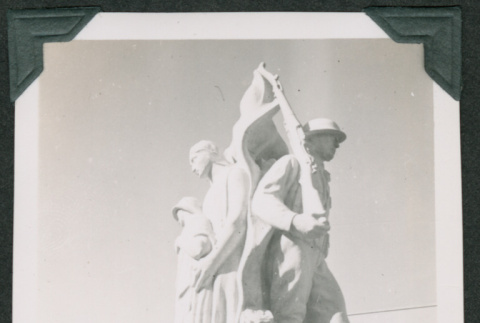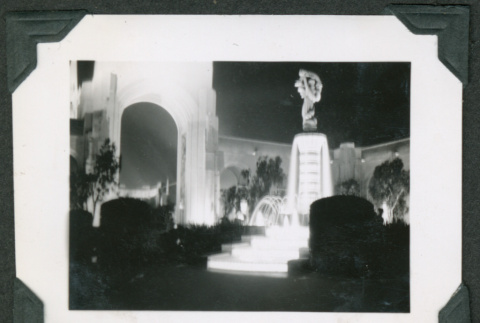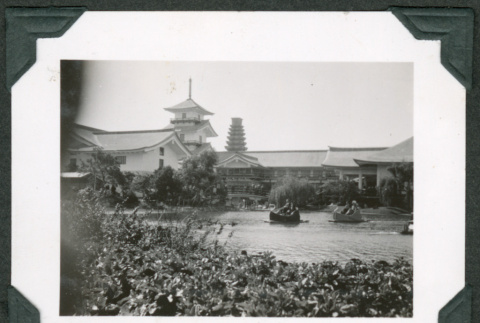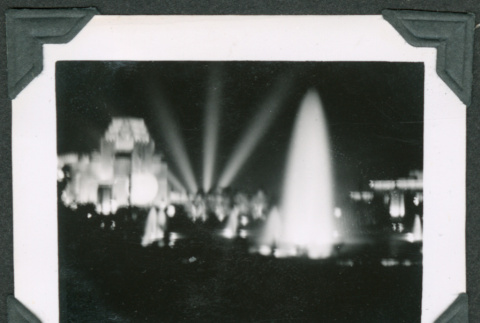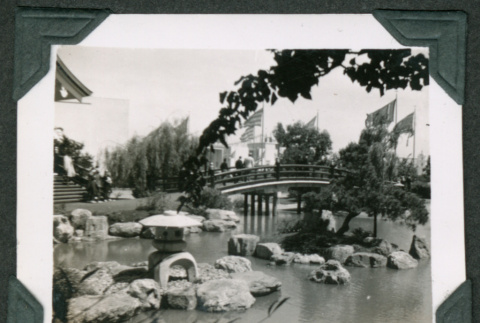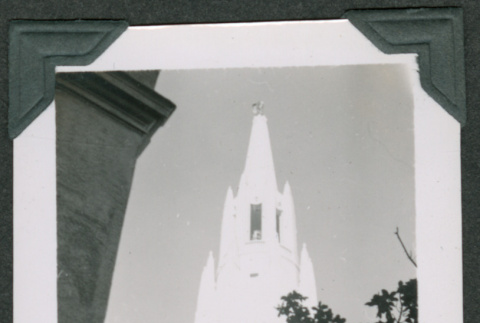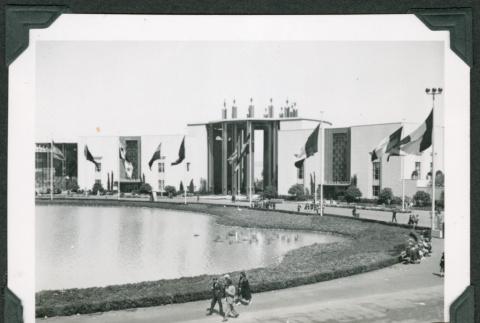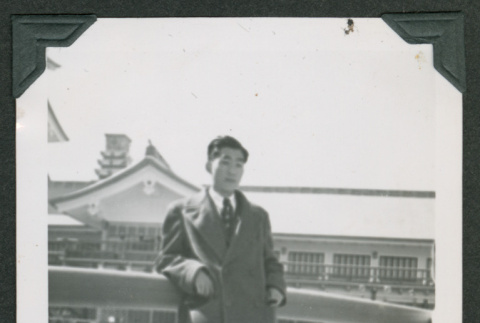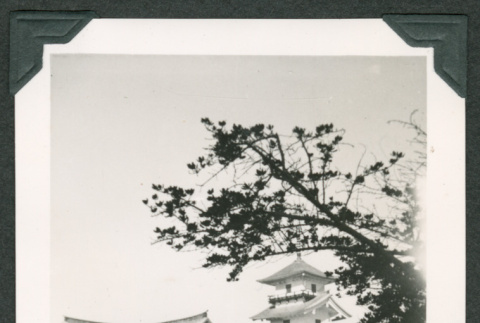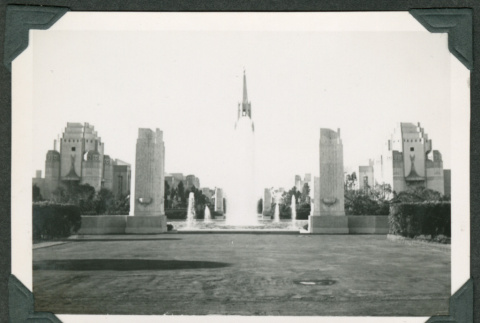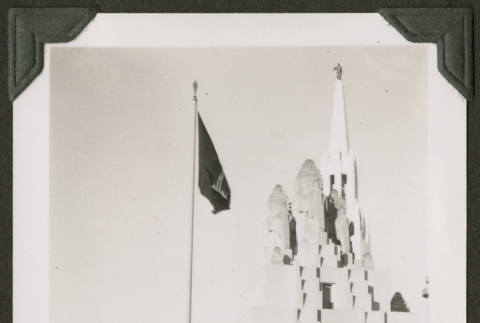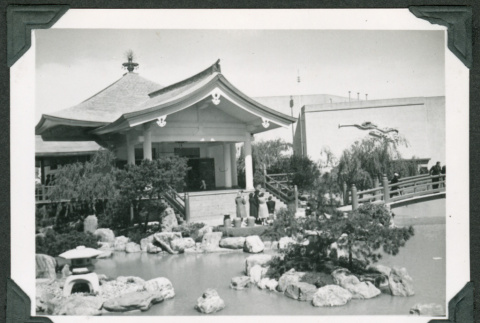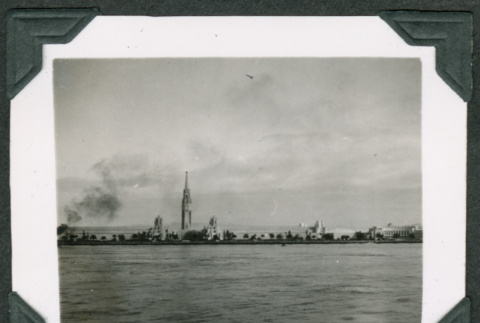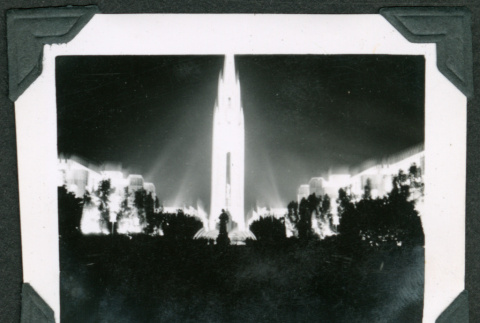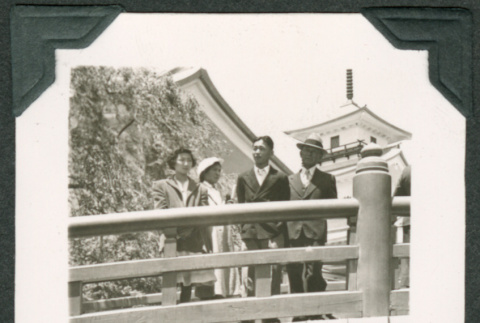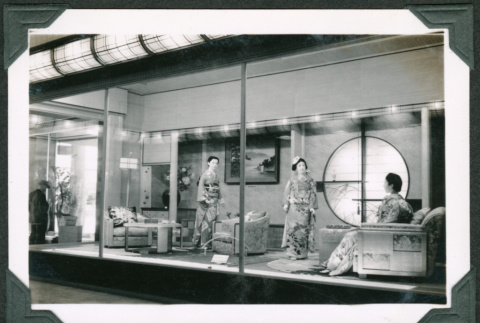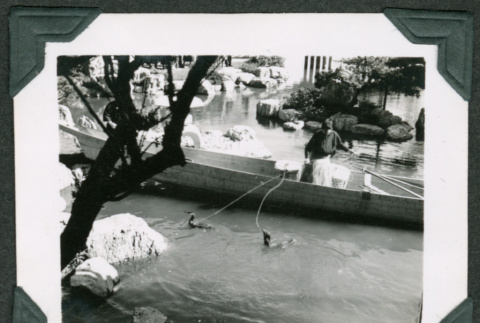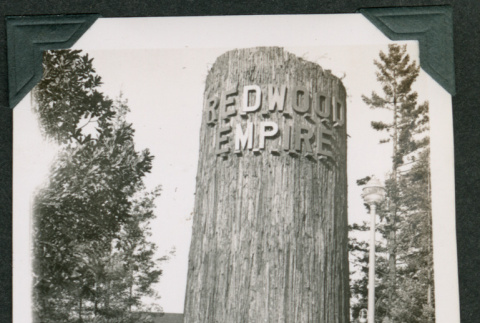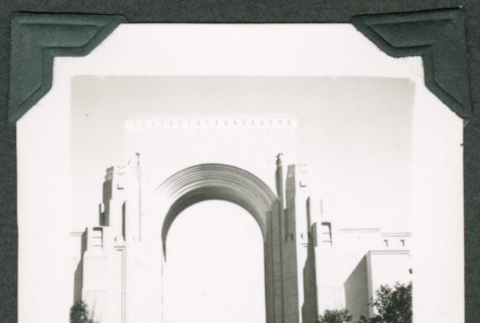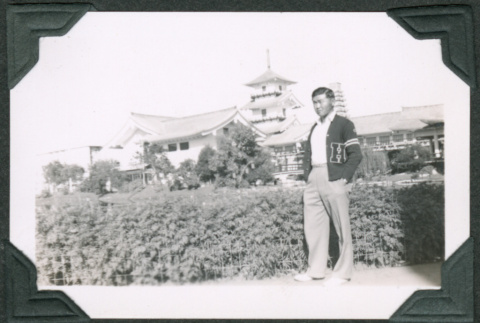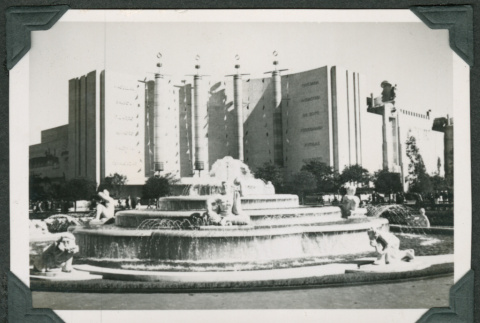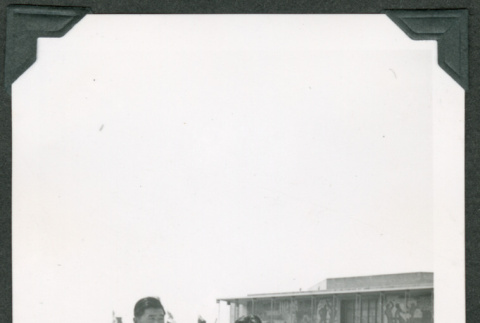2441 items
2441 items
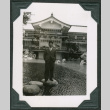
img
Man on rock in front of Japanese Pavilion (ddr-densho-475-559)
Black and white photograph of an unidentified man standing on a rock in a pond in front of the Japanese Pavilion at the Golden Gate International Expo. (negative: ddr-densho-475-124)

img
Fountain and light show (ddr-densho-475-504)
Black and white photograph of a fountain and light show at night at the Golden Gate International Exposition.
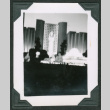
img
Court of Pacifica fountain at night (ddr-densho-475-461)
Black and white photograph of the Court of Pacifica fountain and status lit up at night at the Golden Gate International Exposition.
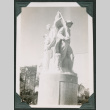
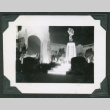
img
Statue at night (ddr-densho-475-502)
Black and white photograph of a statue lit up at night at the Golden Gate International Exposition.
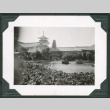
img
Swan boat (ddr-densho-475-500)
Black and white photograph of a swan boat navigating the waters of the Pacific Area at the Golden Gate International Exposition.
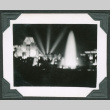
img
Light and water show (ddr-densho-475-460)
Black and white photograph of an evening light and water show at the Golden Gate International Exposition.
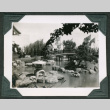
img
Bridge (ddr-densho-475-466)
Black and white photograph of a bridge at the Pacific Area at the Golden Gate International Exposition.
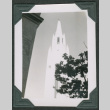
img
Tower of the Sun (ddr-densho-475-473)
Black and white photograph of the Tower of the Sun at the Golden Gate International Exposition.
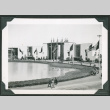
img
Buildings with flags out front (ddr-densho-475-491)
Black and white photograph of a building with flags out front at the Golden Gate International Exposition.
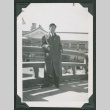
img
Man on bridge (ddr-densho-475-740)
Black and white photograph of an unidentified man in a coat leaning against the railing of a foot bridge at the Golden Gate International Exposition. (negative: ddr-densho-475-126)
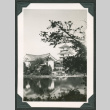
img
Japanese Pavilion (ddr-densho-475-449)
Black and white photograph of the Japanese Pavilion at the Golden Gate International Exposition. Written on album page below the image is "Japanese Pavilion" in white pencil. Written across the top of the page is "Golden Gate International Exposition 1939-1940" in white pencil.
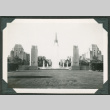
img
Fountain (ddr-densho-475-493)
Black and white photograph of a water fountain in front of the Tower of the Sun at the Golden Gate International Exposition.
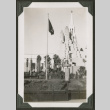
img
Flag pole (ddr-densho-475-478)
Black and white photograph of a flag pole at the Portals of the Pacific at the Golden Gate International Exposition.
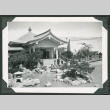
img
Japanese Pavilion (ddr-densho-475-486)
Black and white photograph of the Japanese Pavilion at the Golden Gate International Exposition.
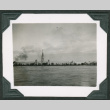
img
Treasure Island across water (ddr-densho-475-448)
Black and white photograph of Golden Gate International Exposition buildings on Treasure Island. Written on album page below the image is "Treasure Island" in white pencil. Written across the top of the page is "Golden Gate International Exposition 1939-1940" in white pencil.
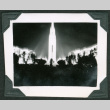
img
Tower of the Sun at night (ddr-densho-475-462)
Black and white photograph of the Tower of the Sun lit up at night at the Golden Gate International Exposition.
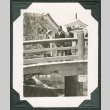
img
Four people on bridge (ddr-densho-475-514)
Black and white photograph of four unidentified people standing on a bridge at the Pacific Area at the Golden Gate International Exposition.
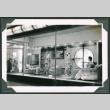
img
Display of Japanese house (ddr-densho-475-480)
Black and white photograph of a mannequin display of the interior of a traditional Japanese house.
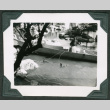
img
Ducks on a line (ddr-densho-475-465)
Black and white photograph of two people in a boat with ducks on a line.
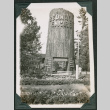
img
Redwood Empire (ddr-densho-475-484)
Black and white photograph of the Redwood Empire entrance at the Golden Gate International Exposition.
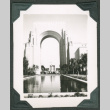
img
Reflecting pool (ddr-densho-475-467)
Black and white photograph of a reflecting pool at the Golden Gate International Exposition.
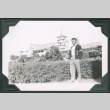
img
Man in front of Japanese Pavilion (ddr-densho-475-517)
Black and white photograph of an unidentified man standing with the Japanese Pavilion in the background at the Golden Gate International Exposition.

img
Building and water fountain (ddr-densho-475-489)
Black and white photograph of a water fountain and building at the Court of Pacifica at the Golden Gate International Exposition.
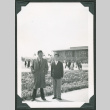
img
Two men standing (ddr-densho-475-512)
Black and white photograph of two unidentified men standing in front of a building at the Golden Gate International Exposition.
